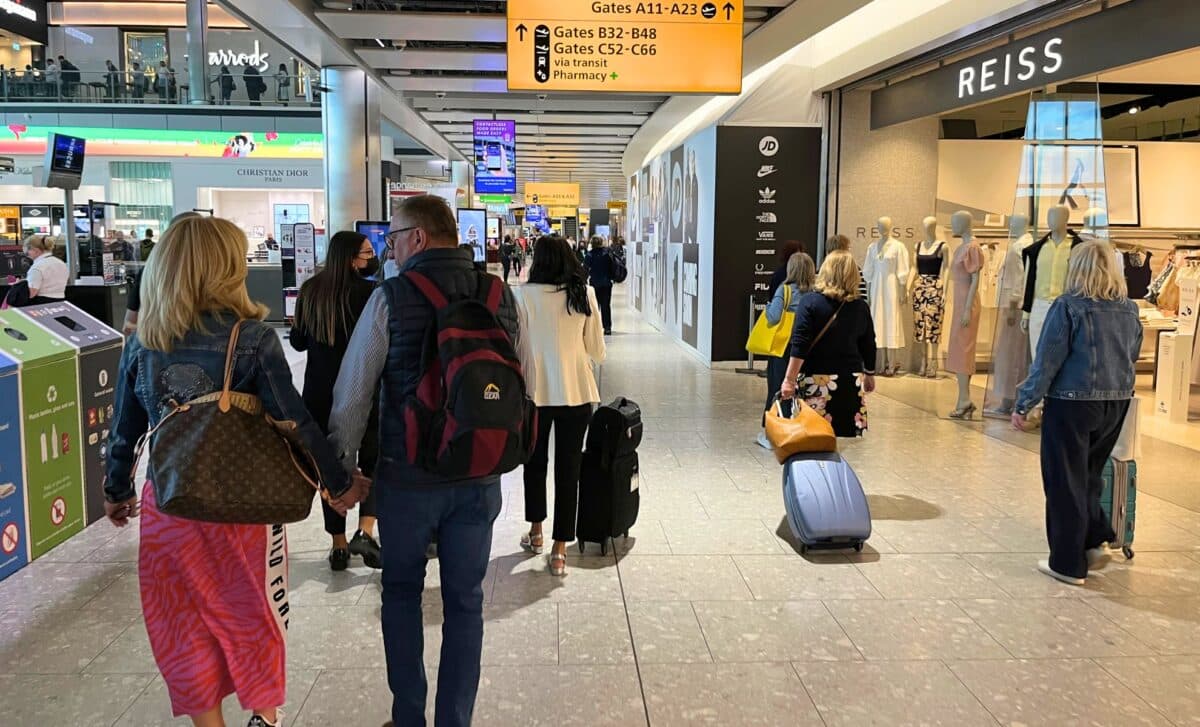Heathrow Airport, one of the world’s busiest air hubs, is set for major disruption as almost 800 workers plan to strike between 7 and 13 May. The strike is in response to plans to outsource the airport, a decision that has caused much controversy and disruption among staff.
The main actors in this strike are the Unite union, which represents the airport’s passenger services, operations and security staff. The union is firmly committed to defending the jobs, wages and benefits of its members.
Reason Behind Heathrow Workers’ Strike
This industrial action follows Heathrow’s intention to outsource three groups of employees by June 1st. It is feared by the union that this is a cost-cutting measure which could have a negative impact on workers’ terms and conditions of employment.
Sharon Graham, Unite’s General Secretary, has strongly criticised Heathrow’s actions. She accused the airport of putting the profits of its management ahead of the welfare of its employees.
According to Sharon Graham, the union is committed to defending its members and will support those involved in the dispute.
“Heathrow is raking in massive profits for executives while attempting to squeeze every last penny out of its workforce.” Sharon Graham.
Unite claims a refusal by the airport to engage in negotiations on alternatives regarding the outsourcing of the workforce, something the company claims will save £40 million.
Heathrow, for its part, insists that the planned strike action is unnecessary. A spokesperson assured that the planned outsourcing would not result in any job losses.
Instead, the airport claims that it is reorganising to better serve its customers and that discussions with Unite about the transition are ongoing.
The timing of the strike, coinciding with train strikes scheduled for 7-9 May, could exacerbate transport problems in the region. Union members will be walking off the job at a number of rail operators. These include c2c, Greater Anglia, GTR Great Northern Thameslink, Southeastern, Southern and Gatwick Express.
In addition, another major disruption is a strike involving fifty aircraft refuellers working at Heathrow Airport. This will last 72 hours from 4 May, threatening to disrupt services during one of the busiest travel periods of the year.
Those involved are Unite union members working for AFS Aviation. The union says it refuels planes for 35 airlines at Heathrow, including Emirates, Virgin Atlantic and Air France, and warns that the strikes ‘could seriously disrupt airline services for passengers’.
The fuel strike comes as part of a dispute over reduced pension and sickness benefits for new staff recruited since the start of the year. This situation has led to what the union describes as a ‘two-tier workforce’.
Given the scale of the strike and the number of airlines affected, passengers are likely to experience severe disruption to air transport services. This illustrates how industrial action can have a significant impact on the aviation industry and the travelling public.









